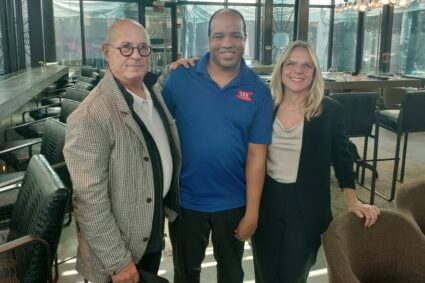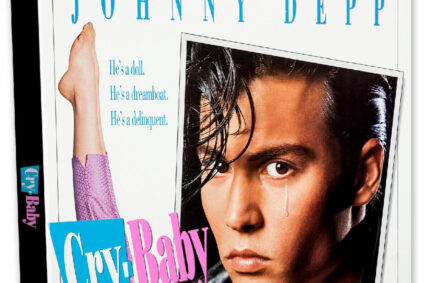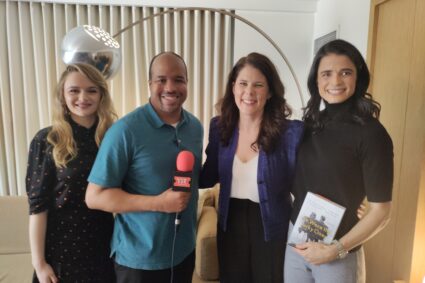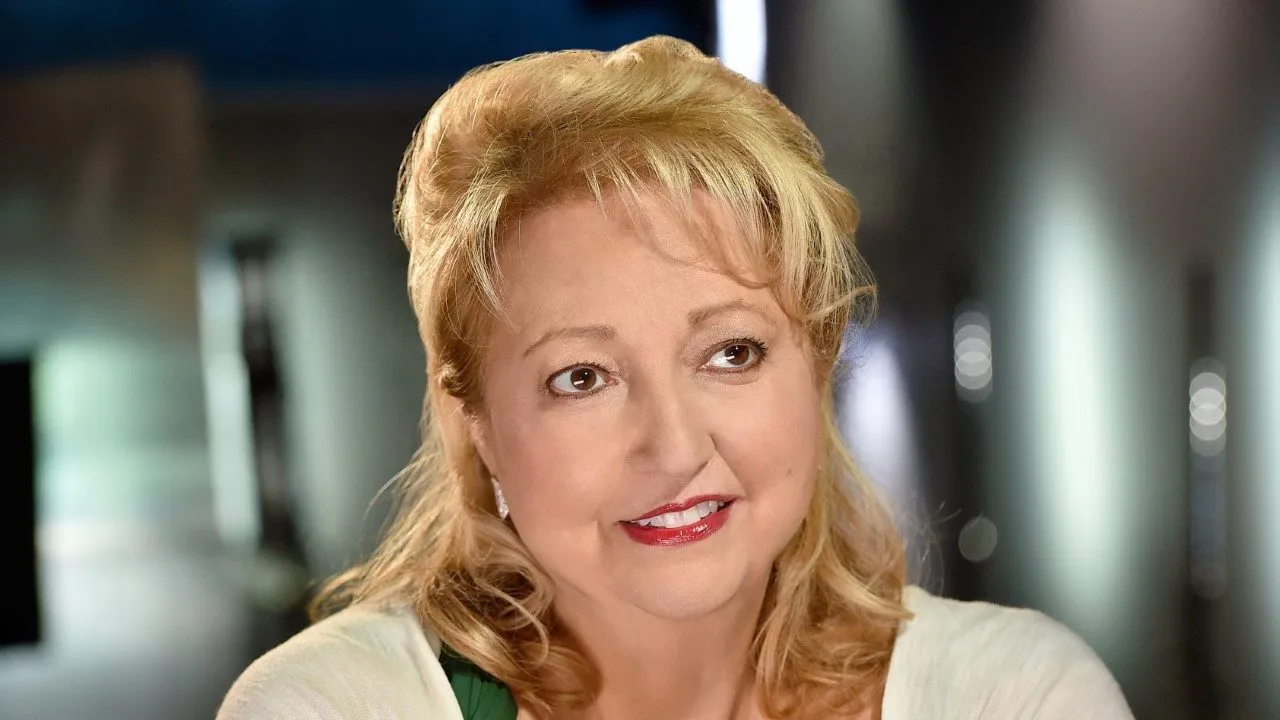
On this edition of THE INTERVUE, there are many words to describe our current guest. Among them are performer, teacher, storyteller, entrepreneur, and expert. She is an acting teacher and founder of the Creative Center for the Arts and the Los Angeles Acting Conservatory. She is now a well established and successful film director.
Her upcoming film Miranda’s Victim stars, Abigail Breslin, Luke Wilson and Ryan Philippe. It tells the story of Trish Weir, who was kidnapped and brutally raped by Ernesto Miranda. The subsequent trials went all the way to the U.S. Supreme Court and led to the creation of the now Miranda Rights. The film open opened the Santa Barbara Film Festival back in February.
We have here today for your listening pleasure. My friends, Michelle Danner.
Michelle, welcome to THE INTERVUE.
Hi, how are you? Thank you for having me.
I am doing fine. And it’s so great to have you here especially since we’re talking about a film of something that we’re very familiar with, if you’re watching any police dramas over the years. The first question want to ask you, especially in relation to Miranda’s Victim is how did you come across the story of Trish Weir?
They reached out to me, the writers and producers of the movie. They had heard of me, I had another movie called The Runner that was on the festival circuit that was getting a lot of attention and a lot of awards. I met with them and immediately knew I got the email on a Sunday night. And normally, I would just wait till Monday but I immediately got excited because I was like “Oh my god, this story has never been told. What, how can this be?”
In fact, this story about how the Miranda rights came about Patricia Weir story was never told, neither through a documentary or TV show. It was a feature film and I immediately saw the importance, the uniqueness of it. And I got really excited to to tell the story.
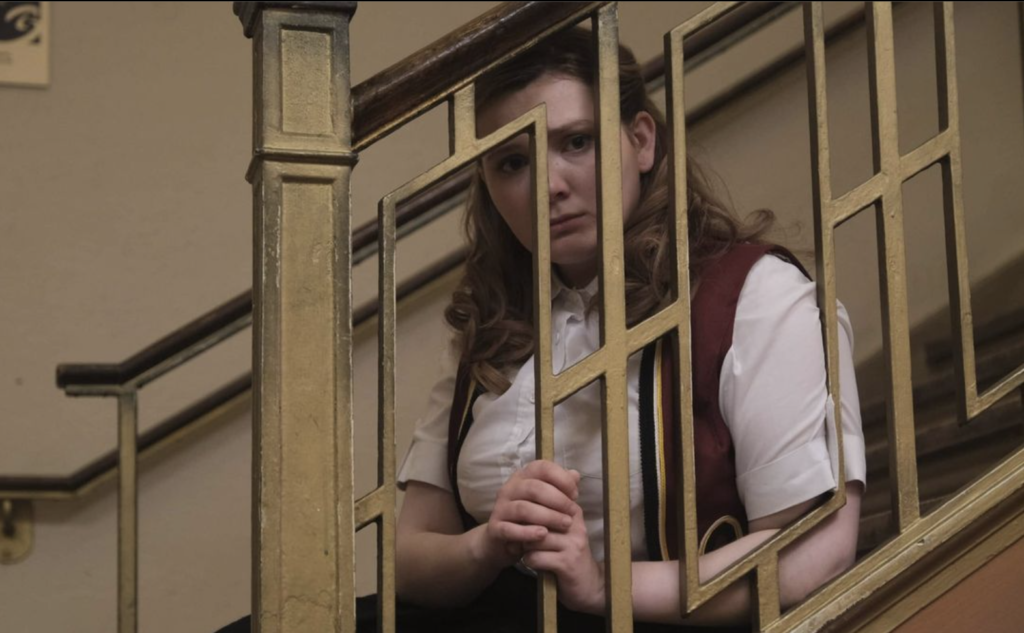
Absolutely. I’ve mentioned before that many of us heard about the Miranda Rights, but no one outside the police officers and lawyers knew the right story, the actual story behind it. As we mentioned earlier that it stars Abigail Breslin, who we all know from Little Miss Sunshine and the Dirty Dancing remake. What was it about Abigail, that you felt that she was the one to play Trish and work along to bring Trisha story to life?
Well, I remember distinctly, I have told the story of how I had a lot of actresses on my desk, their profiles. And then I looked at her and I said, “Stop messing around, just get a real actress to play this.” And I remember, thankfully hearing that voice. I sent her the script. She read it immediately. We met and the rest is history. She gives her phenomenal performance. It’s really a fascinating story about justice and it has a huge twist at the end. There was karmic justice. I’m really excited for her. I loved working with her, as I did with the rest of this phenomenal cast.
I mean, we got Luke Wilson & Ryan Philippe. What was somebody to work with that amazing cast with this movie?
Well, Donald Sutherland, you know is a legend…..
From M*A*S*H* and The Hunger Games, so many films over the years.
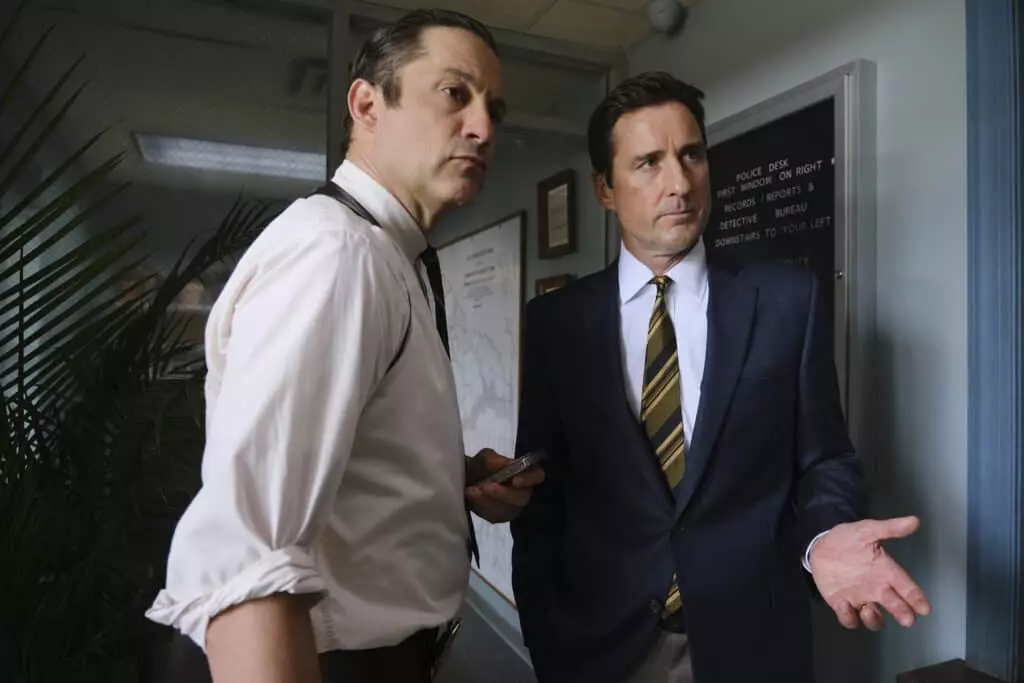
I just have tears in my eyes thinking about Donald Sutherland. then, and Andy Garcia is someone else who is a legend. Kyle McLachlan who you know and love is another legend. I met Emily VanCamp and Josh Bowman, extraordinary actress Moorea Innes. She was in a series called The Killing. Taryn Manning from Orange is the New Black. Nolan Gould whom we watched grow up on Modern Family. Dan Lauria who I known for many years, and I did another movie with him. I’m sure I’m forgetting somebody. But this cast that came about, I don’t even know how this happened but it happened.
And as we know that this story takes place back in the 1960s. Was it easy to recreate the tale, especially since we’re now 2023, and it makes sure that everything is just so right for that era?
Well, it’s not easy when you do a period piece, right? And you want to be true and authentic to it. We lucked out in the sense that we shot in a courthouse of the 60s and in the police station of the 60s. And as a matter of fact, nobody had ever shot a movie there. And when we finished shooting there, they ton the building down.
I know, this building is no longer there. But we’re lucky enough to get it and it was like very authentic. So we shot those scenes there. We build courtrooms. We went to Arizona to shoot. We had some great locations where a costume designer, a production designer, cinematographer who really made it come to life made the period come to life.
I’m so glad you were able to do that courthouse in nick of time before it was grazed. Now, I can imagine now one of the hardest scenes to shoot was the doctor’s visit. For it was not only emotional, but it was very hard to watch. And I want you to walk us through that monumental scene?
Yes, it was a difficult scene to shoot, it was a difficult day, it was an emotional scene. I was lucky enough to help this incredible actress Dan Lauria, who came to do it. We found the right way to play it. And we were just aware that there was going to be, you know, draining. It is one of those scenes that is important for the movie.
And because it’s about what women go through. And I had different ideas of how I wanted to shoot it. And then when you’re in the moment, and you’re doing it, you just go with the flow of what feels right.
And do you have a release date of when Miranda’s Victim will be available to the general public?
Yes. It’s gonna be the end of September, beginning of October.
Will this be in theaters or streaming media?
Oh, it’ll probably in movie theaters and on all the platforms.

When I was researching you, and the initial interview was brought to me that I heard your name dropped at the 2023 Humans to Mars Summit in Washington DC for this project called Helios. When I saw and heard the presentation, I was very excited because I’m a science fiction fan. I love movies that takes place in space. So let’s talk about Helios and what it’s all about, and how did you come aboard this particular project?
Well, again, they sought me out. I was in New York and I read the script. I remember thinking, “this is really great. I love this.” And then I started to research it. Realize that women don’t get the opportunity to direct these disastrous sci-fi movies. Mimi Leder did with Deep Impact.
So I think, women have directed movies, these smaller movies but this was a big movie, and it’s about something important. Especially now with the way our world is. It’s human stories and how people come to each other’s rescue, in moments of need big moments of crisis, when you feel like potentially, to be the end of the world. And have one’s true nature reveals itself. I found that very compelling and powerful in a movie that people need to see. I love movie when at the end you’re so moved, that you want to hug the people that you love. You have this enormous amount of love and power in giving to people and love with that.
I’ve been to a lot of film festivals over the years, but I’ve never heard of when I read the Cinema at the Edge Film Festival, which you are in charge of what makes this film festival unique compared to ones I may have been to before?
What made it unique is right now it’s not essential but I hope it will be there soon. We’re actually looking for a venue. We had this beautiful center that had two beautiful theaters in Santa Monica. And you know, because of COVID, we lost them. That’s where we did it for almost a decade. What made what made this festival unique is that it celebrated grassroot filmmaking, powerful filmmaking that would keep us on the edge. It was called Cinema at the Edge. Beautiful documentaries and shorts and full length narratives.
I want you to talk about how do you take a script and making your own as a director. Talk about your directing style.
You know, that’s a great question. And yes, matter of fact, I always look for the answer to what is the human condition? What’s the humanity in the moment? And how we have characters behave based on their own humanity like. I believe in synchronicities, and I just love specifics. When I watched movies, I ask “Did you see this physicality? Did you hear this line of dialogue? Did you see this moment?” It’s very tough for other people to watch movies.
I know the feeling too well.
We’re pointing out all the turning points and all the impactful moments that really get us to our core. But there’s a shooting script that the director puts their stamp on. That’s what I look I look for characters that are very delineated that are very idiosyncratic. And if there’s the right amount of obstacle in the script, and if we can really track their internal law.
So I want to change courses from your directing, to acting because I understand you were an actress for a number of years. And then you created these acting schools from what I’ve read of the clientele that you’ve taught, it blows my mind of who you have taught. So the first question I want to ask you with that is, what was it like to be a student under both Stella Adler and Uta Hagen. And turn it around and work with some of these well known actors that we’ve seen on stage & screen all over?
Well, first of all, I should just say that I love actors. I love working with actors. Whether I coach them or whether they come on set, they find out to do a movie that I’m passionate about, I just love working with actors, I understand their process. I deeply love the craft. I was lucky enough to really work with some incredible people. I love also to work with actors that are not well known, that are just starting out. There’s a purity in their instrument that often, I feel like I can contribute.
And I think all parts of storytelling is really about contribution. It’s about giving something of yourself. I love teaching. I’m lucky enough that I’m able to do that I just finished a stretch of teaching some master classes in between movies, I just love to go back and to share what I what I’ve learned because every project redefines who you are. And then you have more input, more things to pass down.
And who were some of the actors that you admired. Growing up that made you want to turn this into a lifelong career, whether it’s acting, coaching, or directing. Who were some of your influences?
Well, I grew up in the era, but my dad was the president of the William Morris Agency in the 60s, in the very first offices off the Champs Elysses region. So as a little girl, I was very, very close to my dad, and he brought me into his office and I would play in his office under his desk. And so I would see all these stars, of the theater and film and singers come in different nationalities and talk about their dreams and what they wanted for their careers.
I was privy to all of that. I always loved words, literature books. I was an avid reader from when I was in diapers. So I grew up in the arts in Europe and Paris. And that love kept growing and growing. You know, I just love every I love the theater and the film. I just finished doing an interview with Anne Archer because I did a play with her called A Ticket to the Circus and we both talked about the love for the theater. I love working with them in all capacities, whether we’re prepping for a play or coaching them.
And so I admire all those actors. And then growing up, I love all the movies with Betty Davis. As of lately, I rewatched High Noon with Gary Cooper and Grace Kelly. And very important to just go back to the classics. I have a son who studies film and theater at USC. And we’re constantly going back and watching film festivals with westerns and science fiction. I love watching great acting, and some of it is incredible. Some of its very good. And you learn from mediocre stuff as well.
And that’s a great segue to my next question. Because you’ve been a teacher for a number of years, you taught some of the best brilliant actors out there. For those who are interested and are listening in taking a course from you. What are some of the qualities that an actor needs to have in order to be successful? Whether it’s on a TV series or mini series in theater?
You know, first of all, you need patience because it takes time to grow as an artist, and maybe you’re not ready just yet and you have to accept that. I love Bryan Cranston who said, “I’m glad that success found me when I found it, because I don’t know if I would have been ready for it before that.” So you have to be ready for a certain level. And study, I will always recommend you study. I’m an eternal student of the craft and life. I’m constantly reading and studying and taking classes. And you know, you’re just constantly that that’s what makes you grow.
I normally ask this last question when it comes to actors. If you haven’t played that role yet? What would be your role?
Well, I think I might have played it. It was a wonderful screenplay called The Italians that played the matriarch that may think that didn’t have another thing that I want to play. I think that I’m going to find a way to put everything on my vision board and make it come to life. I like it when you come to the end of your life. And you ask someone, you know, regret, disappointment? And I love it when somebody says, “No, did it exactly the way that I wanted to do it?” So I want to make sure that I’m one of those people that I’m able to say that at the end of my life?
If you want expand on your acting or know more about Michelle, go to MichelleDanner.com and on Instagram @michelledannerla
